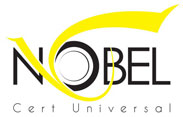What should I look for when I have an Inspection need?
Many companies provide inspection services, sometimes at what appears to be low cost. However, before commissioning an organization to undertake such work, it is important to consider the risks:
- Are you confident that the organization has the technical competence to undertake the work in question?
- Are you satisfied that the organization has the resources to do the work?
- Are your needs for impartiality and integrity met by the application of suitable procedures in the organization?
- Are you confident that the organization has an adequate quality management system in place to provide a service that consistently meets your needs and expectations?
The technical competence of an inspection body depends on a number of factors including:
- staff with sound knowledge, skills, experience and professional judgement
- the right equipment – properly maintained and, where necessary, calibrated
- appropriate sampling practices
- sound inspection procedures
- accurate recording and reporting of evidence and inspection results
- adequate quality assurance and quality control
When selecting a supplier to fulfil your inspection needs, you need to be confident that the Inspection Body can supply you with a technically competent service and with consistently reliable results.
How do I gain confidence in an Inspection Body?
An inspection body may reassure you that they have the necessary attributes by way of their experience and reputation (this is called first party or self-declaration), or you can attempt to evaluate their competence yourself (this is called a second party audit).
Self-declaration and second party auditing are widely used and accepted forms of gaining confidence in a particular product, service or process. However, organizations have found that significant time, resources and costs are spent auditing or being audited. Consequently, third party or independent assessment has, in the majority of cases, become the acceptable cost effective alternative to all parties.
ISO 9001 certification or ISO/IEC 17020 accreditation?
In the case of an inspection body there are two independent options that can provide confidence to you and other interested parties:
- accreditation of the inspection body’s competence to carry out the specific inspection tasks using ISO/IEC 17020, or
- certification of the inspection body’s quality management system using ISO 9001
These standards are related to each other through the management system requirements and are relevant in gaining confidence in the results produced by an inspection body.
Accreditation to ISO/IEC 17020 “Conformity assessment — Requirements for the operation of various types of bodies performing inspection” involves an independent accreditation body assessing an inspection body’s competence to carry out specific inspection activities. The focus of ISO/IEC 17020 is on the independence, impartiality and integrity of the inspection body and the competence of its people, its inspection processes, and its equipment. In addition, the standard also includes a requirement for the inspection body to maintain a quality management system. The general criteria of ISO/IEC 17020 are supplemented by a variety of ILAC and IAF/ILAC documents and specific scheme requirements.
How do I gain confidence in an Inspection Body?
Certification to ISO 9001 (“Quality management systems – Requirements”) is carried out by an independent management system auditing organization with the purpose of certifying the inspection body’s quality management system. The main focus of the audit is the organizational and operational aspects that allow the inspection body to provide a service that consistently meets customer and applicable statutory and regulatory requirements. Part of the quality management system includes the inspection body’s ability to ensure that its people, processes and equipment are able to meet customer requirements.
These management system auditing organizations (generally called certification bodies) can themselves also choose to be accredited (using ISO/IEC 17021 “Conformity assessment – Requirements for bodies providing audit and certification of management systems”) in order to provide their clients and other interested parties with added confidence in their competence to provide certification. ISO 9001 is, however, a generic standard that can be applied to all organizations, regardless of the type, size, or service provided. It can therefore be applied to, but is not specific for, organizations that provide inspection services.
How can you tell if an Inspection Body is accredited?
Accredited inspection bodies are able to issue inspection reports or certificates bearing the symbol go of the accreditation body that provides the accreditation.
As an inspection body gains ISO/IEC 17020 accreditation for specific inspections, you should check that the inspection body is accredited for the inspections you need. This detail is specified in the Scope of Accreditation, which may be supplied by the inspection body or the accreditation body on request.
Accreditation bodies publish lists or directories of the inspection bodies they have accredited (often on-line), together with contact details and information on their accredited inspection capabilities. You can therefore contact the accreditation body and find out whether there are any accredited inspection bodies that can perform the inspections you require.
